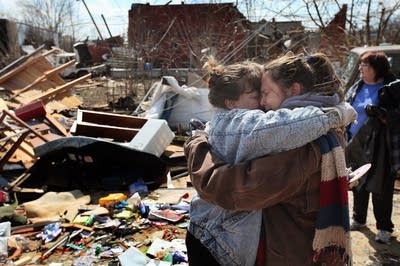The science behind fostering resilience
Go Deeper.
Create an account or log in to save stories.
Like this?
Thanks for liking this story! We have added it to a list of your favorite stories.

Throughout history, we've been drawn to tales of human resilience and overcoming adversity. How can we foster resilience, and how do science and environmental factors work together to build resilience?
Ann Masten, child psychology at the University of Minnesota, will join The Daily Circuit Tuesday to discuss resilience.
"We learn through these stories," she said. "We're fascinated with the idea of overcoming difficulty in the stories of heroes and heroism. Another interesting feature - they're an ordinary seeming person who rises to the occasion. I think they inherently recognize that we all, in a way, have the capacity for resilience. Even a regular person can make it through adversity."
Steven Southwick, professor of psychiatry at Yale, will also join the discussion.
"Resilience is complex and seems to be multidimensional in nature," he said. "Someone may be resilient in professional life but not in personal relationships. There might be resilience in one phase, but not in others. It's important to consider that there are a number of definitions of resilience."
VIDEO: This Emotional Life on Resilience
Turn Up Your Support
MPR News helps you turn down the noise and build shared understanding. Turn up your support for this public resource and keep trusted journalism accessible to all.
Dear reader,
Your voice matters. And we want to hear it.
Will you help shape the future of Minnesota Public Radio by taking our short Listener Survey?
It only takes a few minutes, and your input helps us serve you better—whether it’s news, culture, or the conversations that matter most to Minnesotans.




